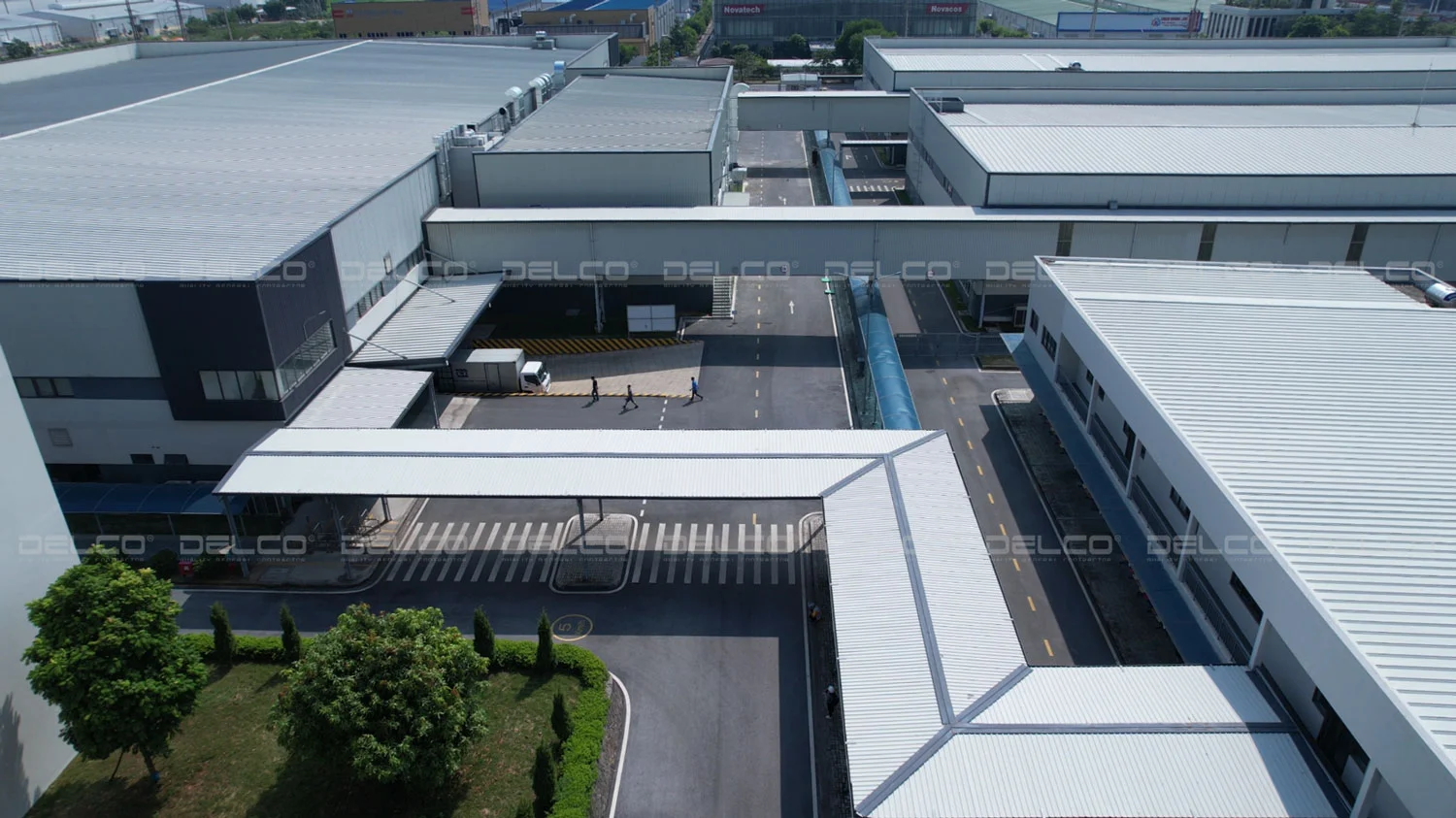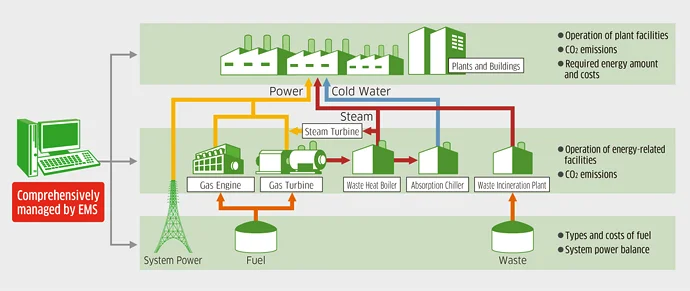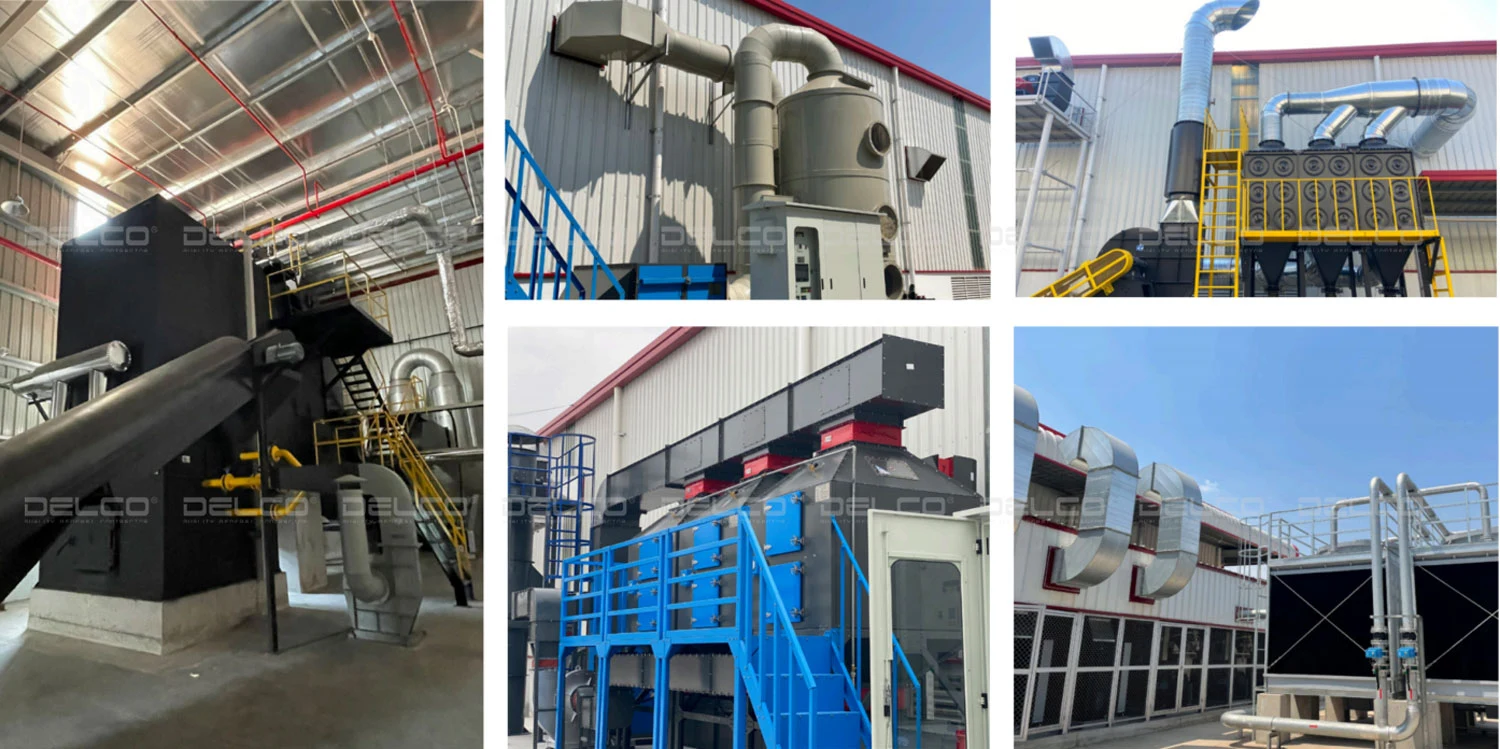The finishing progress directly impacts the aesthetics and functionality of the factory, requiring contractors to implement strict measures for monitoring and controlling both the schedule and quality of the project.
Paying special attention to fire prevention
The finishing process involves dangerous tasks such as metal cutting, welding, and equipment installation, which present a high risk of fire and explosions due to electrical sparks, gas leaks, and short circuits. Therefore, contractors must develop appropriate fire and explosion prevention measures to ensure the safety of workers and the project.
Holding Regular Safety Training
Ensure that workers are trained in occupational safety and equipped with all necessary protective gear. Inspect machinery, electrical sources, and gas systems before commencing work to ensure safe installation and normal operation. Flammable materials must be properly stored in designated areas.
Preparing Necessary Fire Fighting Equipment
Prepare firefighting equipment in metal welding and cutting zones, near workers, and in other high-risk areas such as machine rooms and corridors. When welding at height, use protective measures to prevent welding sparks from falling. When stopping work, ensure all equipment is powered off before leaving the site.
Conducting Supervision and Inspection
Contractors need to enhance personnel supervision and inspection during the construction of finishing tasks. This not only helps strict control of quality and schedule but also the timely detects and early handles fire and explosion risks to ensure safety throughout the construction process. The site’s HSE team must also coordinate closely, conduct regular inspections of high-risk areas, prepare reports, and propose timely remedial measures to ensure the safety of the project and the workers.
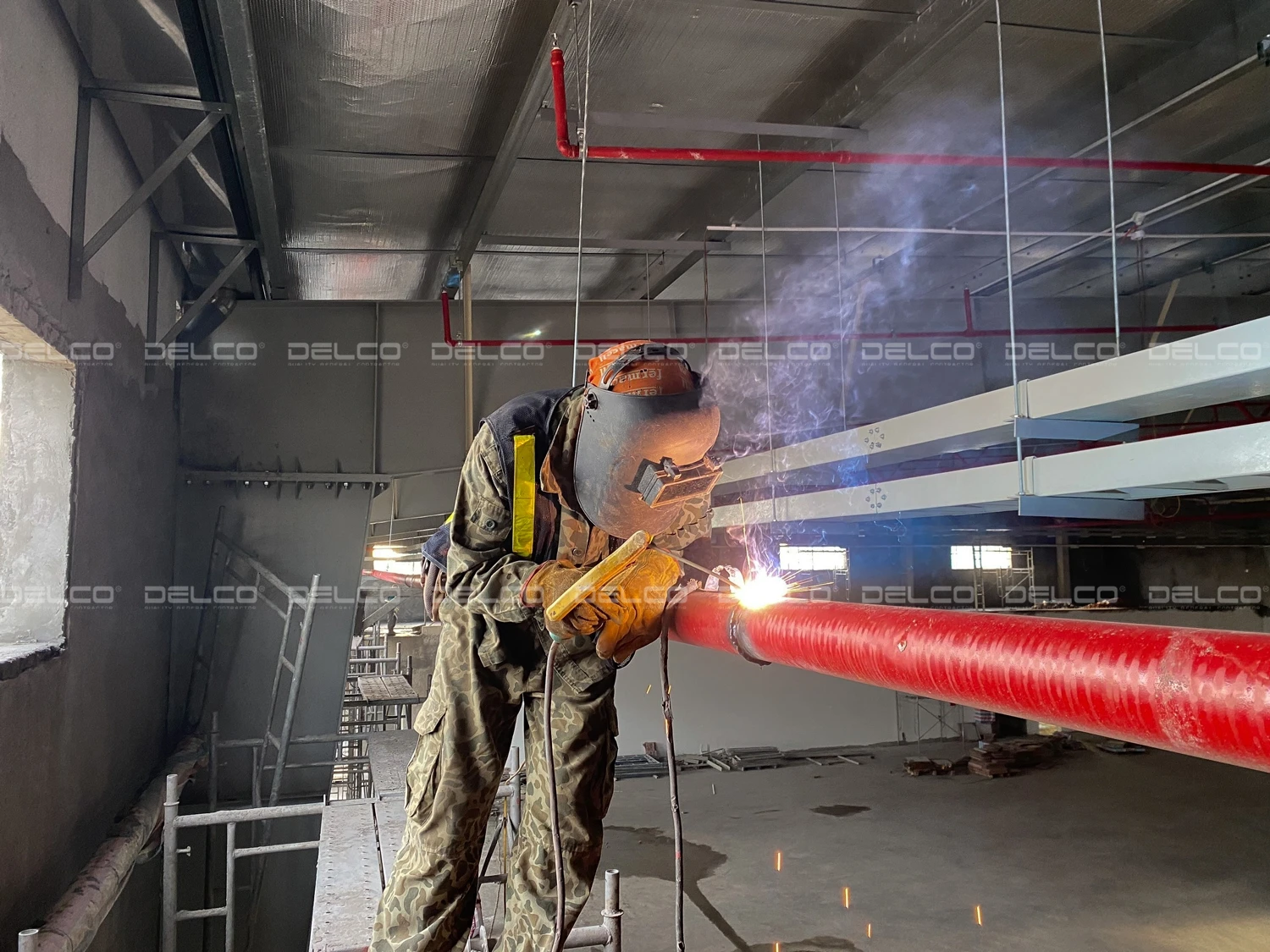
Strictly Controlling Construction Schedule
Contractors must closely monitor and control the construction schedule during the finishing progress, as it is the closest to the construction closing phase. This progress typically focuses on critical tasks such as installing technical systems, testing and important equipment, and completing acceptance for each item. Additionally, many tasks are often carried out in parallel during this phase, requiring contractors to align the progress and design of each task with the original project documents, ensuring the project is executed according to the plan.
If there are discrepancies or design adjustments required by the investor or updates related to technological advancements, the contractor must promptly adjust the project’s finishing items, such as the electrical cable tray system, sockets, and electrical cabinets, to ensure compatibility with the production equipment.
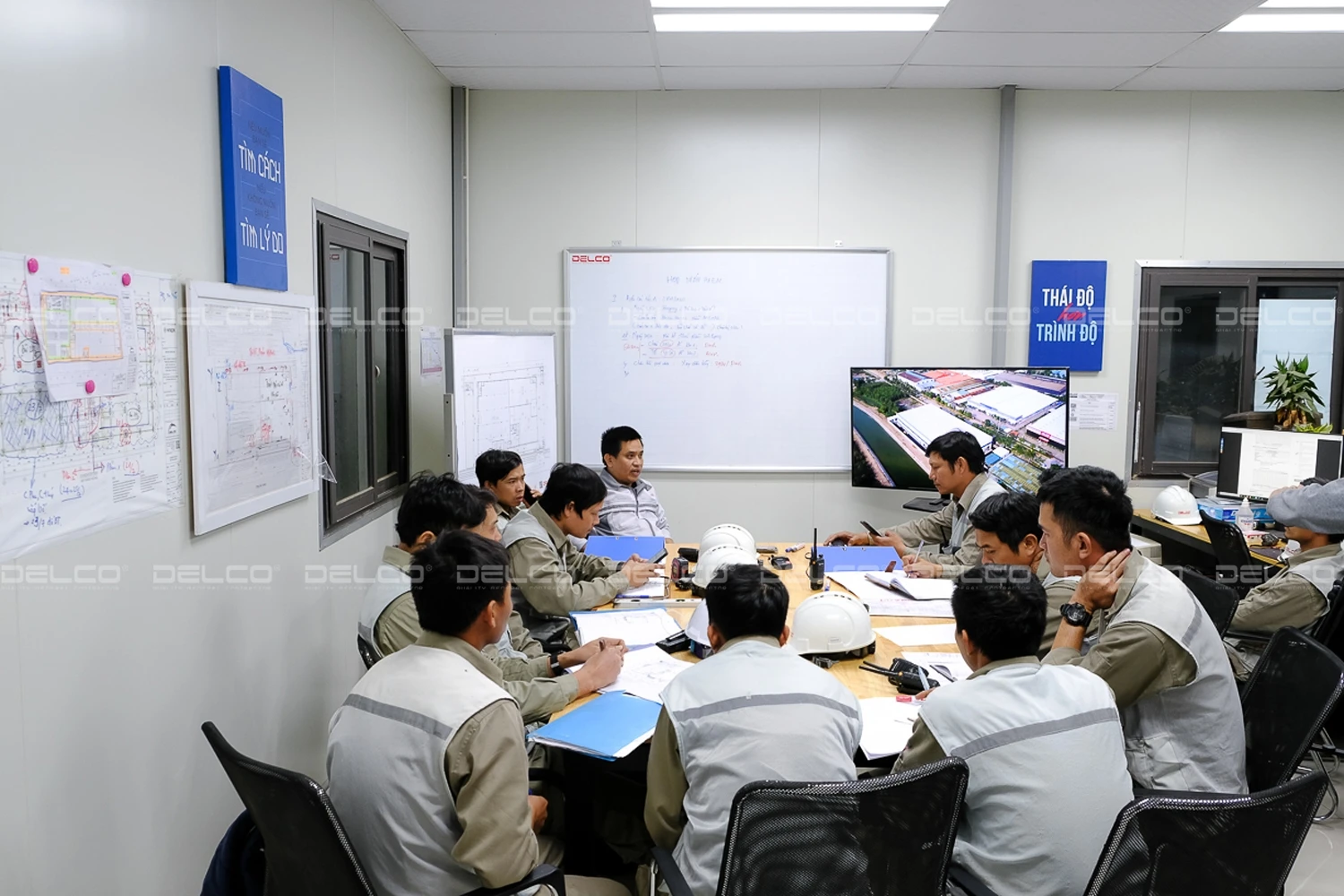
Changes in planning, such as adding auxiliary items like garbage room to meet the requirements of government authorities (such as fire prevention authorities or environmental management authority), can also occur. To promptly handle these changes, the investor and contractor need a scientifically coordinated plan among all parties involved, organizing meetings to calculate and discuss issues related to costs and schedule that may arise. This ensures that all changes are approved and implemented promptly, minimizing impacts on the overall project timeline.
Controlling the quality of the Project
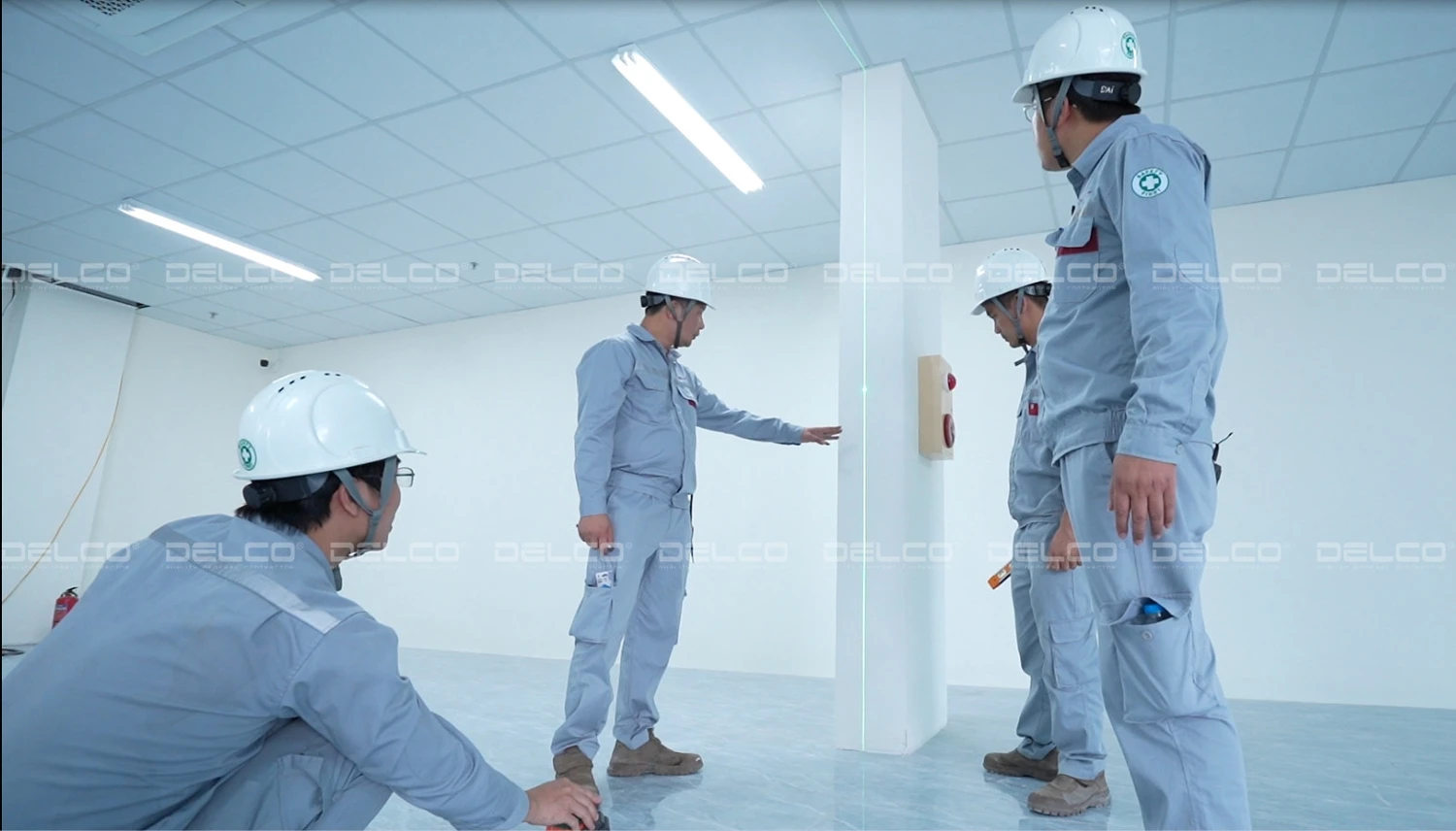
The finishing progress directly impacts the aesthetics and functionality of the factory. Therefore, contractors need to allocate resources from the QC department and/or PMO to inspect and assess material quality, closely monitor each construction item, and ensure compliance with procedures and technical standards required by the investor. Additionally, contractors should proactively send weekly construction reports and plans to keep the investor fully informed of the project status.
Furthermore, contractors need to review and adhere to the coordination plan among stakeholders, from internal stakeholders (such as the site QC department, responsible engineers, and work teams) to coordination with clients (including investor representatives and supervision consultants). This ensures the organization of inspections, testing, and acceptance of each task, guaranteeing that the factory construction project meets all requirements regarding quality, technical specifications, and safe operation.
See more: Ensuring safety of factory construction during extreme heat condition


